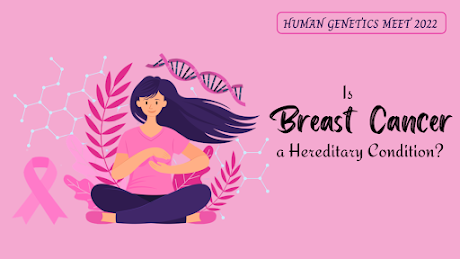Yes, some breast cancers are caused by inheriting genes with specific mutations. Hereditary breast cancer, on the other hand, accounts for just 5 to 10% of all breast cancer diagnoses. A family may have one of the following inherited gene mutations or genetic disorders, which raise cancer risk:
- BRCA1
or BRCA2 mutations These gene mutations are linked to an increased risk of
breast and ovarian cancer.
- Mutations
in the TP53 gene cause Li-Fraumeni Syndrome.
- Mutations
in the PTEN gene cause Cowden Syndrome.
- ATM,
CHEK2, PALB2. These gene mutations are linked to a slightly higher risk of
breast cancer.
1) an increased incidence of these cancers
among individuals with a family history of these cancers; 2) multiple family
members affected with these and other cancers, and 3) a pattern of cancers
compatible with autosomal dominant inheritance are all factors that point to a
genetic contribution to both breast cancer and gynecologic cancer. An autosomal
dominant cancer propensity gene can be inherited and transmitted by both males
and females.
Additional variables, including as
reproductive history, oral contraceptive and hormone replacement usage,
early-life radiation exposure, alcohol use, and physical activity, might
increase an individual's chance of developing cancer when combined with family
history.
Genetic testing for hereditary cancer risk
and risk-management measures are influenced by psychosocial variables. The use
of genetic testing differs greatly between investigations. Cancer-specific
discomfort and the perceived risk of acquiring breast or ovarian cancer are two
psychological variables linked to testing uptake. In the long run, studies have
demonstrated that both carriers and noncarriers experience minimal levels of
distress after genetic testing. RRM and RRSO use vary between studies and may
be impacted by factors such as cancer history, age, family history, health care
professional recommendations, and preoperative genetic information and
counseling. Gender, age, and the degree of relatedness are some of the factors
that influence how patients communicate with their family members about a
hereditary risk of breast and gynecologic cancer. Research is continuing to understand and manage psychological and behavioral concerns in high-risk families.




No comments:
Post a Comment